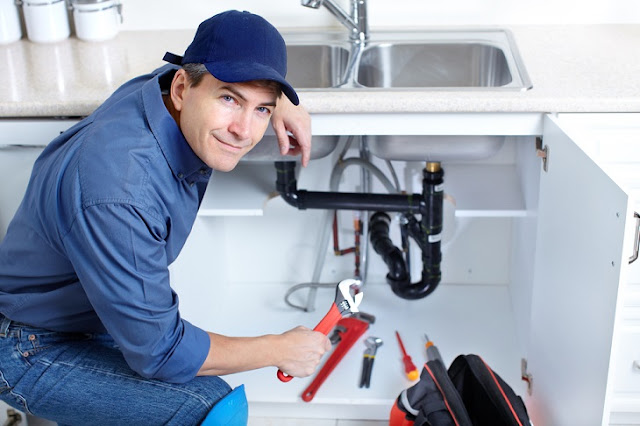What Are the Different Types of Plumbing Issues That You Can Face and When to Call a Plumber for Your Home and Commercial Premises?
It can be one of the most irritating sounds in the world especially if it is coming from a faucet in our house.
It means a problem, which is being ignored and has a potential of becoming big. It also means that precious water is being wasted and so is money on the water bill.
 |
| Plumber |
# Types of Plumbing Issues
- Leaking Pipes: We see leaking pipes the year round but they become more common during winter months. Pipes tend to leak from joints.
- Running Faucets: Water, which comes in, has to go out. It will keep looking for a method to go out. If there is a smallest of opening, it will force its way through it. When a tap is turned off the rubber or silicon based washers form a watertight seal that prevents the water from pushing through. Over time, washers become stiff and tear allowing that annoying drip.
- Running Toilets: Due to leakage in the toilet pipe or due to blockage in the toilet line due to hair strands or roots, the running toilets can be blocked. In that case, only an expert plumber who has the right tools and plumbing equipment can come to your home rescue.
- Slow and Clogged Drains: when the water refuses to drain our or drains out very slowly from the sink or tub in the house it means there is a full or partial clog in the drain. Clogs can be removed partially by a plunger which uses air pressure to dislodge the clog. To completely clean a clog, drain cleaners/ removers are required.
- Low Water Pressure: Where there was, Gushing water coming out of the faucets now the water tickles through it. It means low water pressure.
- There is a possibility that the water pressure in your area has reduced but chances are that there is a build-up in the pipes restricting the flow of water.
- It could also be because of build-up of deposits in the faucets and showerhead aerators.
# Ways of Rectifying the Same Plumbing Problems
There are two approaches to the above:
- DO it yourself
- Involve Professionals
Choosing the right approach will depend on the level of the problem being faced.
# Do-It-Yourself: Plumbing Repair in 8 Steps Before You Call in A Plumber
- The first thing is to turn off the main water supply.
- Determine which pipes are causing the problem.
- Determine the direction the water is taking to reach the main drainpipe.
- Dress in clothes in which it is ok to get wet. However careful you are plumbing maintenance and repair will get messy.
- Measure twice and cut once is the rule to be applied in cutting plumbing supplies.
- Always take the parts to be repaired to the hardware store to ensure you get the right Items.
- Always keep the Professional plumbers number handy for those unexpected accidents.
- Keep a set of Allen wrenches handy with gaskets and valves in various sizes.
 |
| Emergency Plumber |
# Call a Professional:
Some issues are too dangerous or complicated to tackle alone. It is always advisable to call professional plumbers or plumbing companies to undertake the same, including:
- installation of new pipes, sinks or tubs
- water heater problems
- Low water pressure Problems
- Possible Leakages and concealed water pipes
- new construction that requires building permits
- septic tank leaks
There are many plumbers available in the market, you can call in the 24/7 emergency plumbers from your locality in case you face severe drainage problem issues. At the same time, concern on your part is also an essential factor to keep your home plumbing lines completely in order.
Comments
Post a Comment